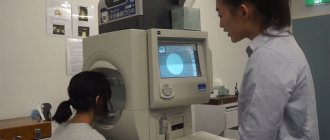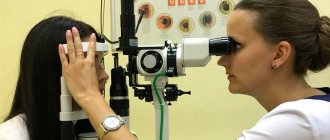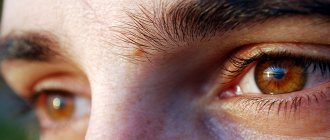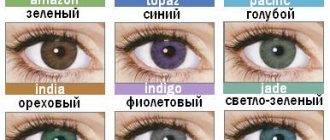The phenomenon of improving relationships by achieving harmony in a social group - for example, agreement, reconciliation, compromise - is called accommodation in social psychology.
You can also define the concept of accommodation as changing your behavior taking into account the prevailing circumstances. And these changes will be the ones that are expected from you. The presence of strangers is not even necessary, the idea that they are nearby is enough, since our behavior alone with ourselves is often different from how we behave in public.
Recommended: Acmeology: a field of study of science?
In the psychological concept of Jean Piaget, this concept is explained as one of the aspects of adaptation. When a situation requires a person to take certain actions, our behavior intuitively adapts to the given environment. Accordingly, in different situations, with various changes, we will constantly adapt. The world around us constantly requires transformation from a person, his adaptation to changing living conditions.
The concept of accommodation is closely related to the concept of assimilation (this is what the fusion process is called). Thus, the definition of accommodation in the modern world is present in different areas of our lives, such as:
- Biology.
- Physiology.
- Linguistics (phonetics).
- Psychology.
Age-related risk of disease and stage
Paresis of accommodation often occurs due to age-related aging. Over time, the eye lens becomes inoperable due to clouding. After which the eye cannot examine objects.
Typically, people encounter this problem after the age of forty and begin to wear glasses due to the fact that they cease to distinguish between letters and text written in a book or newspaper. In this case, an urgent examination by a specialist and a course of treatment are needed to maintain and restore eye accommodation.
The following stages of accommodation disease are distinguished:
- weakening of accommodation of the eye.
- disturbance and spasm of accommodation and the entire eye.
- accommodation disease and paresis.
The last stage, which requires urgent treatment and surgery, is complete paralysis of accommodation. If you do not intervene, you can permanently and completely lose your vision. Regardless of the person's age. This can happen both in a child who has vision problems and in an adult.
Sometimes the disease manifests itself from childhood. Between the ages of 0 and 20 years, a disturbance and weakening of accommodation occurs, which no one pays attention to. This phenomenon occurs most often among schoolchildren and today's youth. Further, the person begins to see gradually worse, although sometimes it is almost imperceptible. According to statistics, this development of the disease occurs between 20 and 40 years. This is called PINA or, in a stronger form, spasm of accommodation. When the eye is under tension for a long time, a spasm begins and paralyzes it. Further, without proper treatment, the disease progresses and turns into paresis, which can lead to complete loss of vision. At the age of forty, it is worth conducting regular examinations in order to promptly identify disorders.
Symptoms of accommodation disorders
- Insufficient accommodation for near.
- Insufficient accommodation for distance.
- False myopia is a spasm of accommodation.
- Paralysis of the ciliary muscle is paralysis of accommodation.
- Presbyopia.
In the medical department, everyone can undergo examination using the most modern diagnostic equipment, and based on the results, receive advice from a highly qualified specialist. The clinic is open seven days a week and operates daily from 9 a.m. to 9 p.m. Our specialists will help identify the cause of vision loss and provide competent treatment for identified pathologies.
You can make an appointment at the Moscow Eye Clinic by calling Moscow 8 (daily from 9:00 to 21:00) or using the online registration form.
Dagaev Adam Huseinovich
Factors of occurrence
Two types of accommodation paresis are often described:
- central, which occurs due to chronic and infectious diseases;
- the second type manifests itself as a result of taking medications that contain M-anticholinergics, which negatively affect the accommodation of the eye and the lens.
Paresis is also called paralysis due to damage to nerve cells. It arises in connection with:
- with a head injury;
- nervous breakdowns;
- unsuccessful falls on the spine;
- childbirth, when all the nerves and muscles are tense.
Sometimes people lose their vision after severe injuries. Sometimes it comes back, but there are cases where treatment or even surgery is required to recover.
Weakening and disruption of accommodation, which leads to paresis, is caused by heavy loads:
- first of all, this is evening work with poor lighting: reading books or newspapers, writing homework, small manual work in which the eyes are heavily involved;
- perhaps sitting for a long time in front of the TV or computer, with the phone;
- prolonged tension in the muscles of the back, neck and shoulders, as well as constant pain can lead to weakening and paresis of accommodation;
- lack of daily routine and nutrition;
- excessive physical activity or lack of it at all.
- diseases themselves - infectious and chronic;
- injuries;
- diabetes;
- diseases of the nervous system;
- influenza, scarlet fever and diphtheria;
- poisoning by harmful chemicals;
- unhealthy lifestyle and lack of vitamin intake;
- presence of farsightedness.
Types of accommodation
— Absolute accommodation is a change in the curvature of the lens with only one eye, without the participation of the other.
— Relative accommodation is a process when a change in the curvature of the lens occurs with the eyes when fixating an object.
Foreign scientists additionally identify a number of accommodation components for its qualitative characteristics. They distinguish: reflex, proximal, vergence and tonic accommodation.
— Reflex accommodation - automatic setting of refraction in order to constantly maintain the clarity of the perceived object.
You may be interested in Vitreous body of the eye: structure, composition and functions
— Proximal accommodation is an accommodation that begins to work when the object approaches more than three meters to identify it
— Vergence accommodation is the sum of the accommodations of the two eyes.
— Tonic accommodation — shows the state of dynamic refraction when there is no stimulus for accommodation
First signs and subsequent violations
It is impossible to immediately detect vision problems in a person. Like any disease, paresis has an increasing cycle of weakening and impairment.
It can be identified, but you should pay attention to the symptoms that gradually lead to a critical condition:
- The eyes get tired quickly, especially when working hard on them.
- I begin to experience the first problems when accommodation is impaired, such as watery eyes, burning, dryness, redness and even slight tingling and pain.
- Then your eyes will become more and more tired. From time to time, the picture before your eyes will begin to blur and it will become more difficult to distinguish small objects each time.
- With complex eye work, the pupils will begin to enlarge.
- There will often be headaches in the parietal and frontal region. Sometimes with strong pulsations in the temples.
When the first symptoms of visual impairment appear, you should pay attention to this and reduce eye strain, especially in the evening. Change work from sitting to more mobile or vice versa.
Diagnostics
If you have the above symptoms, you should consult a neurologist and ophthalmologist. They will prescribe the right treatment to slow down the stage leading to spasm of accommodation.
An ophthalmologist can diagnose “accommodative paresis” of the eye. This can also be determined by an optician when choosing glasses and lenses.
A full examination includes the following procedures:
- visometry;
- examination of the fundus and optical middle eyes;
- refractometry;
- measurement of intraocular pressure;
- study of the volume and reserves of accommodation, the nature of vision, fusion reserves of the eye.
To find out the causes of this disease, it is worth undergoing a questionnaire examination from doctors, which will help collect all the necessary information about the disease. After which a course of treatment will be prescribed.
Accommodation
(lat. accomodatio - adaptation to something)
adaptation of a person’s behavior pattern to a specific situation due to his activity, as a result of which this pattern changes. Introduced by J. Piaget in his concept of intelligence; A. was described by analogy with biological A., the purpose of which is the process of adaptation to the requirements of the surrounding world. A. is correlated with assimilation, in unity with which they constitute an act of adaptation, adaptation.
(Bim-Bad B.M. Pedagogical encyclopedic dictionary. - M., 2002. P. 13)
Source: Pedagogical terminological dictionary on Gufo.me
Meanings in other dictionaries
- accommodation - ACCOMODATION -i; and. [lat. accommodation]. Specialist. Adaptation to smth. A. eyes (the ability of the eye to adapt to viewing objects at different distances). ◁ Accommodative, -aya, -oe. A-th ability of the eye. Accommodative, -aya, -oe. Kuznetsov's Explanatory Dictionary
- accommodation - accommodation g. 1. The process of action according to Ch. accommodate 2. The result of such an action; mutual or unidirectional adaptation of the articulation of consonants and vowels (in linguistics). Explanatory Dictionary by Efremova
- Accommodation - This is the general name for adaptation, adapting oneself to such opinions and desires of others with which we ourselves do not find the opportunity to agree. Encyclopedic Dictionary of Brockhaus and Efron
- accommodation - (lat. accomodatio - device). Partial adaptation of the articulation of a consonant and vowel, usually standing next to each other, consisting in ... Rosenthal's Dictionary of Linguistic Terms
- accommodation - spelling accommodation, -and Lopatin's Spelling Dictionary
- accommodation - ACCOMODATION and, g. accommodation f. <lat. accomodatio. Reconciliation based on mutual concessions. Michelson 1877. Reaching an agreement through concessions by one or two parties. Dictionary of Gallicisms of the Russian language
- accommodation - ACCOMODATION, and, g. (specialist.). Adaptation (of an organism). A. speech organs. A. eyes (the ability of the eye to adapt to viewing objects located at different distances from it). | adj. accommodative, oh, oh. Ozhegov's Explanatory Dictionary
- accommodation - (from Latin accomodate - adaptation), a term traditionally used in relation to various. organs and tissues. A. eyes - its adaptation to clear vision of objects located at different distances by focusing the image on the retina. Biological encyclopedic dictionary
- accommodation - -i, f. specialist. Adaptation to smth. ◊ @accommodation of the eye - the ability of the eye to adapt to viewing objects at different distances. @[lat. accomodatio] Small academic dictionary
- ACCOMODATION - ACCOMODATION (from Latin accommodatio - adaptation, adjustment) - in biology and medicine a term close to the term “adaptation” and used in certain cases. Large encyclopedic dictionary
- Accommodation is a strategy of speech communication, as a result of which a reduction or, conversely, an increase in the distance of communication between interlocutors is achieved. Usually... Dictionary of sociolinguistic terms
- Accommodation - I Accommodation (from Latin accomodatio - adaptation) in biology and medicine is a term close to adaptation (See Adaptation), traditionally used in the following three cases: ... Great Soviet Encyclopedia
- accommodation - Accomodation/atsi/ya [y/a]. Morphemic-spelling dictionary
- ACCOMMODATION - ACCOMMODATION, the process of focusing the eye on objects located at different distances. The human eye focuses when the muscles of the ciliary body contract or relax, changing the shape (curvature) of the lens... Scientific and technical dictionary
- ACCOMODATION - (from Latin accomodatio - adaptation to a person) - in J. Piaget's concept of intelligence - a property, side of the adaptation process. The content of activity, according to Piaget, is the adaptation of behavior patterns to a situation that requires certain forms of activity from the body. Large psychological dictionary
- accommodation - Accommodation, g. [latin. accomodatio – adaptation] (experience). Adaptation of the eye to a certain distance by changing the convexity of the lens. Large dictionary of foreign words
- accommodation - Accommodation, accommodation, accommodation, accommodation, accommodation, accommodation, accommodation, accommodation, accommodation, accommodation, accommodation, accommodation, accommodation Zaliznyak's Grammar Dictionary
- ACCOMMODATION - ACCOMODATION (from Latin accomoda-tio - adaptation, adjustment) - English. accommodation; German Akkomodation. Passive form of adaptation to social relationships. see ADAPTATION, ACCULTURATION. Sociological Dictionary
- Accommodation - (lat. accomodatio adaptation) in physiology - the process of adaptation of excitable tissue to the constantly increasing strength of the stimulus, manifested by a gradual decrease in its excitability. Medical encyclopedia
- Accommodation - (lat. accommodatio - adaptation, addiction) - functional adaptation of an object to the environment; one of the stages of the adaptation process and the main element of this process, distinct from assimilation. Biological… Catholic Encyclopedia
- accommodation - 1. (sociolinguistic) A strategy of verbal communication that manifests itself in personal conversation. As a result, A. the communication distance between the interlocutors decreases or increases. More often... Dictionary of linguistic terms Zherebilo
- accommodation - ACCOMODATION, see accommodation. Ushakov's Explanatory Dictionary
- accommodation - noun, number of synonyms: 3 adaptation 11 adaptation 18 adaptation 101 Dictionary of synonyms of the Russian language
- Blog
- Jerzy Lec
- Contacts
- Terms of use
© 2005—2020 Gufo.me
Treatment
If the patient immediately notices decreased vision and worsening accommodation, he should immediately consult an ophthalmologist, who can additionally prescribe eye exercises and appropriate training. Additionally, massage of the back, neck, shoulders, head and temples is sometimes prescribed.
After a complete examination of the patient and a diagnosis of “accommodative paresis,” a course of treatment is prescribed. First of all, the causes of paresis are eliminated and only then the disease itself. In some cases, surgical intervention is not possible.
After each completed stage of treatment, a bandage is put on the eye to ensure the correct diagnosis and the chosen technique. With slight improvement, hardware therapy is prescribed. It could be:
- magnetic therapy;
- laser stimulation;
- paraorbital massage;
- chromotherapy;
- electrophoresis.
The drug treatment is presented in the form of drops, which have a beneficial effect on the lens and normalize the functioning of the pupil, relieve eye fatigue:
- Atropine;
- Cyclomed.
If there is no improvement, surgery is required. It is often prescribed after 40 years of age. If we talk about the occurrence of paresis of accommodation of the eye in a young man, then treatment with therapy almost always helps, but at the end he will still have to wear glasses or contacts.
Some preventative tips
Do not forget that even after treatment, it is necessary to carry out preventive measures and regular routine examinations in order to prevent the disease from progressing:
- You need to lead a healthy lifestyle.
- Start a proper fortified diet.
- Avoid taking pills and various medications that negatively affect vision.
- Spend more time outdoors.
- Sitting less with books, in front of the TV and computer, with the phone. Especially in the evening. Choose a bright place in the morning to read books, newspapers and work.
- Do not forget to use the drops prescribed by your doctor.











